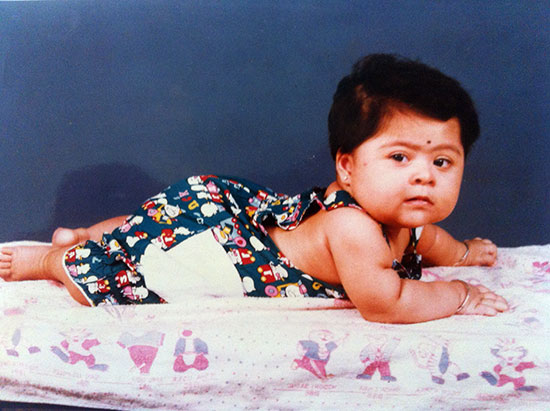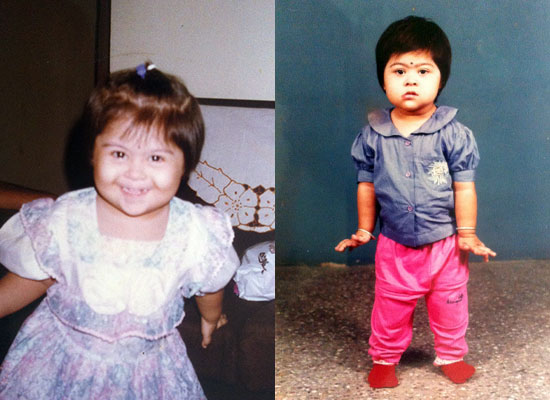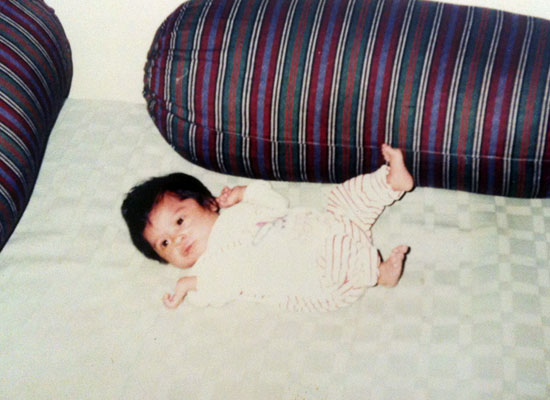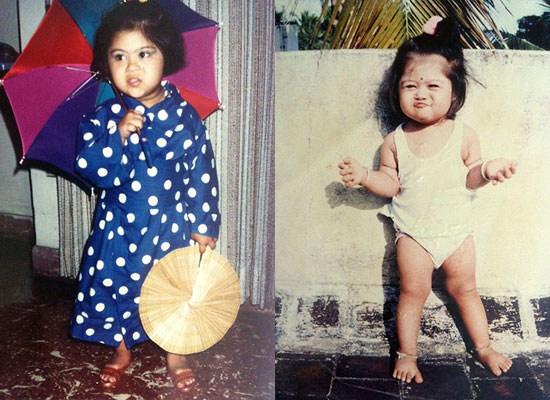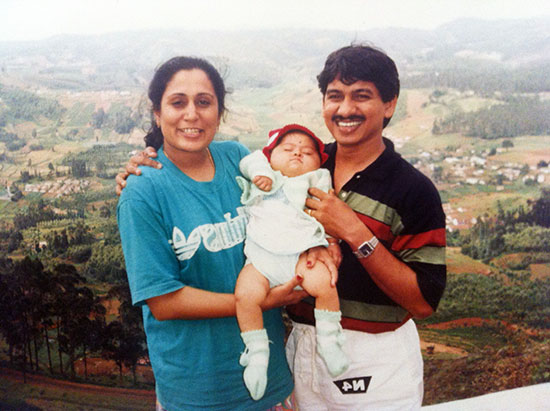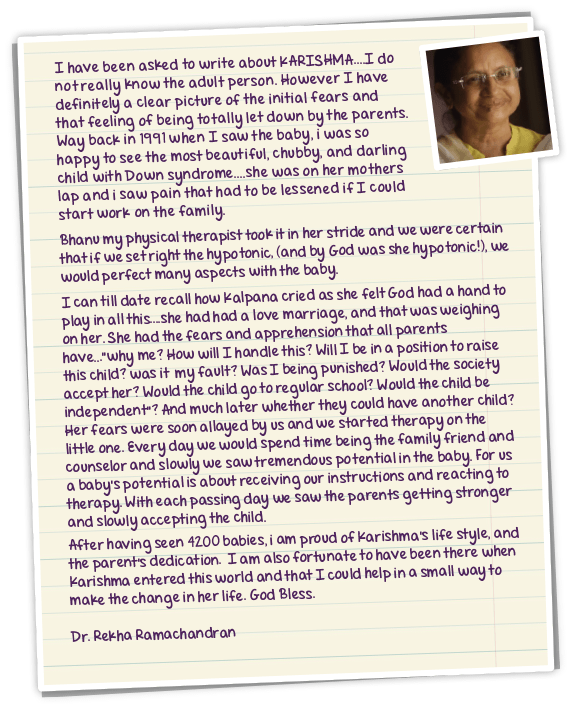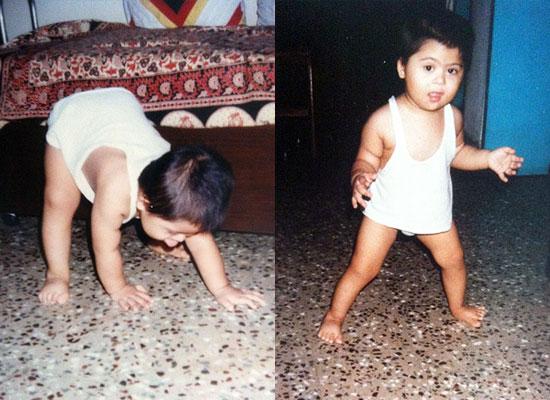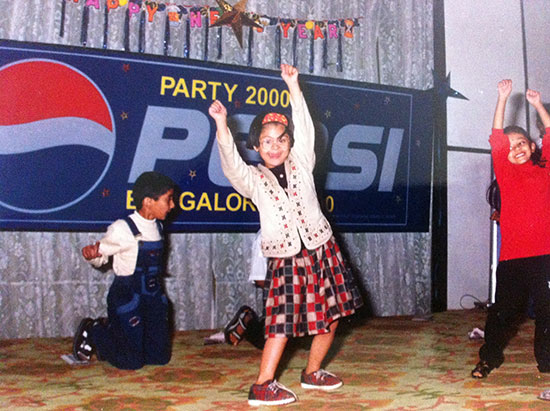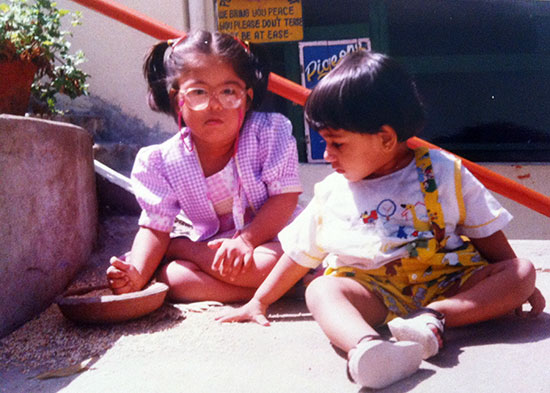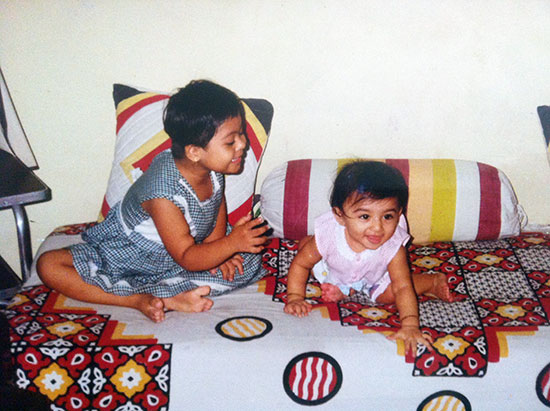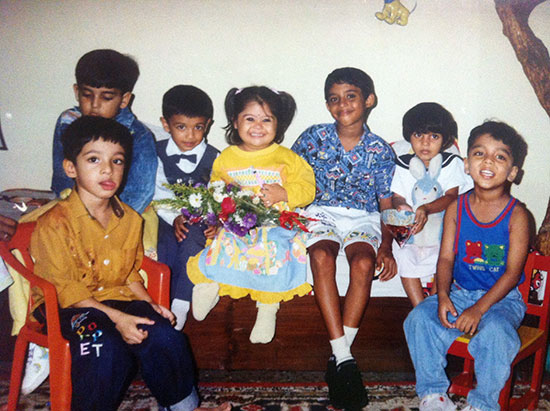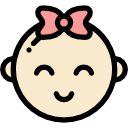Our first reaction as parents was of disbelief and shock. The doctor who diagnosed Karishma’s condition had returned to USA and was not available for further explanation and our clarity. However we went ahead with the tests and waited anxiously for 2 weeks before we got her test results. The results confirmed that she was born with Down syndrome. Well, did this mean that our child would be abnormal??! We had to have a second opinion to believe this as we were in ‘denial state’. We took Karishma to St.John’s Medical Hospital, Bangalore, India and repeated her genetic tests one more time. Here we got the second opinion from professionals reconfirming the same. We felt very helpless and thought ‘Why?…why us?’ We did not find any answers immediately, but by then the truth had begun to dawn on us that her being very delicate, her difficulty in feeding and the delayed responses were not merely a result of her pre-mature birth (she was born 3 weeks pre-term and was under weight) but there was something more to it. And after our initial shock and denial, why-me-syndrome and helplessness, we eventually learnt to ACCEPT our ‘gift’!
We met a series of doctors, counselors, professionals and other parents. We read as much as we could on the subject and it took us a couple of months to understand the syndrome and its impact on our child. Until then both of us were working but now as a mother I had a new role to play and I chose to wind up my business as we realized our life had another purpose. My husband and I together found strength in each other and learnt to appreciate and accept our little angel. We pledged to give her our best. It is from this point in time we believe in our hearts that she is born to us because we are ‘special parents’ and could give her our best. From then on till now there is no looking back. We made every household activity a stimulating experience for Karishma. We gave her the undivided attention and care, which she rightfully deserved. We understood the significance of ‘early intervention’ for Karishma’s development at that stage and worked towards giving her the necessary inputs without loosing more time.
At two and half years we took Karishma to a play school to expose her to social skills. Initially, unlike other children, Karishma would not take initiative. She would not move from her place for hours but sit and watch other children at play. I was the only mother who was allowed to be by her in the school. I used to wonder then how different Karishma was from the other children! Will she ever be able to walk or talk? Will she ever be able to survive in this competitive world?! Determined to progress towards independence, Karishma then spent 2 years attending a Montessori school for 3 hours everyday( where she learnt by observation) while we continued to provide all extra inputs at home to address her individualized-specific needs. Very realistic goals were set keeping in mind both her limitations and strengths. It proved very productive to work as one team- the parents, special educators/therapists and the doctors.
Due to her condition, all her milestones were delayed leaving us with very anxious moments. We would constantly talk to her and then finally the time came when she began to babble a few sounds. We have recorded some of her early sounds which serve as a reminder of challenges overcome and continues to inspire us! The first meaningful words that she spoke are ‘da…da’ calling out for her dad. She was a little over two years then. As she had poor muscle tone and limited co- ordination, it was very difficult for Karishma to stand unsupported. The legs had to be prepared for weight bearing. Her hips, knees and trunk needed to be supported. Aqua therapy and sand therapy were introduced in addition to massage to strengthen her muscles. Karishma finally took her ‘first step’ when she was over 2 years old which was again a great achievement. It happened in the lawns of Marina beach in Chennai, where she walked her first few unsteady steps. Eating independently happened much later, around 3 years, as it required appropriate hand-mouth coordination. Chewing and swallowing solid food was also a challenge for her. She was more comfortable with liquids and semi-solid foods. She could independently drink from her sipper cups.
The next challenging period was when we decided to grow as a family. A couple of doctors and genetic counselors suggested that we should go in for another child. It was a major decision but after a lot of contemplation we decided to grow as a family fully aware of the consequences. We underwent a series of genetic tests to be sure and through out my pregnancy my doctors monitored the developments. All along encouraged by wonderful friends and with total faith and love in our hearts, we once again became proud parents of our second daughter, Kajol, in November 1994. This is the next most beautiful thing that happened to us! Seems like our God had no choice but to give in to our faith in Him!
Karishma was 3 years old by then and although hardly aware, was certainly delighted to have a baby sister to play with. Kajol was always there as a role model. She was growing up into a beautiful, strong individual doing very well in her academics and all round normal development. Her understanding and acceptance of Karishma has been very natural. In a group situation she would become very protective towards Karishma but when alone she has always encouraged her and challenged her to reach higher goals. Among the various activities that Kajol has inspired Karishma to learn, swimming is one sport that both enjoy the most together! There has always been only one goal for Kajol – to make Karishma very strong and independent so that she can survive in this competitive world.
